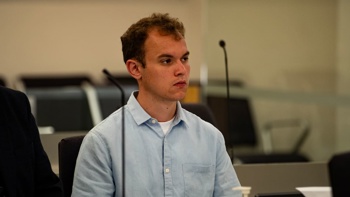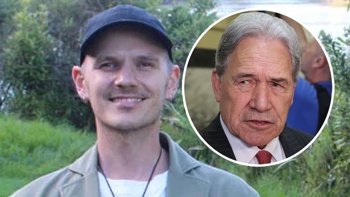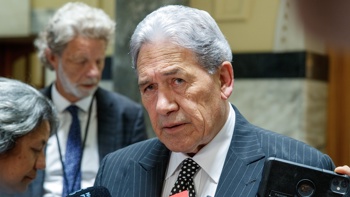Prime Minister Jacinda Ardern has underlined New Zealand's commitment to maintaining "truly independent foreign policy", in a world that's "bloody messy".
Delivering a speech at an event hosted by the Lowy Institute – a prestigious Sydney-based foreign affairs think tank – Ardern discussed how New Zealand is managing its various economic and geopolitical relationships.
In her speech she had a few key messages, saying while New Zealand will stand in support of Ukraine, in the face of "illegal and unjustifiable" invasion from Russia, "fundamentally this is Russia's war".
"Let us not otherwise characterise this as a war of the west vs Russia. Or democracy vs autocracy. It is not," Ardern said.
"Nor should we naturally assume it is a demonstration of the inevitable trajectory in other areas of geostrategic contest," she said, likely referring to China taking a more aggressive approach towards foreign affairs.
"In the wake of the tensions we see rising including in our Indo-Pacific region, diplomacy must become the strongest tool and de-escalation the loudest call.
"We won't succeed, however, if those parties we seek to engage with are increasingly isolated and the region we inhabit becomes increasingly divided and polarised. We must not allow the risk of a self-fulfilling prophecy to become an inevitable outcome for our region."
Ardern said this is one of the reasons New Zealand is intensifying its engagement with the Pacific.
She said "economic architecture" would "build resilience" in the region.
She stressed the Pacific Islands Forum, which will in coming days see leaders from across the Pacific meet, is the "vehicle for addressing regional challenge".
"We see local security challenges being resolved locally, with Pacific Islands Forum Members' security being addressed first and foremost by the Forum family," Ardern said.
Ardern said it would be wrong to characterise China's engagement in the Pacific as "new".
"It would also be wrong to position the Pacific in such a way that they have to 'pick sides.' These are democratic nations with their own sovereign right to determine their foreign policy engagements …
"Priorities should be set by the Pacific. They should be free from coercion."
Coming back to Russia's invasion of Ukraine, Ardern said, "In the face of global conflict and tension, we continue to position ourselves based on the principle of upholding the rules-based order through multilateral institutions. And when seeking solutions to issues, be it war or dispute, New Zealand will turn to these same institutions to act as mediator, and when necessary, as judge."
However, she noted the United Nations has failed to appropriately respond to the war in Ukraine because of the position taken by Russia in the Security Council.
"Here, when the system fails, we seek partnerships and approaches based on the second principle of our independent foreign policy – our values," Ardern said.
"A conviction that we have a moral responsibility to do our part to maintain the rules-based order. That regardless of whether a collective approach is possible, maintaining the basic values of human rights, gender equality, state sovereignty, climate action – that falls on each of us to defend and uphold."
Turning to the Pacific, Ardern said climate change must also be a "foreign policy priority".
"While we all have a concern, and rightly so, about any moves towards militarisation of our region, that must surely be matched by a concern for those who experience the violence of climate change."
Ardern noted New Zealand investment in climate change mitigation in the Pacific – "our home".
"And that makes you, our cousins," Ardern told the Australian audience.
"But more importantly, over many years, it has made you our friend.
"You are our second-largest trading partner. You are our only formal ally. You are our largest market for foreign direct investment. Forty per cent of arrivals into New Zealand in 2019 were from Australia. It's lucky we like you so much.
"We share our people, our problems and our solutions.
"In fact, when we look to our principles; co-operation, values and place – we naturally find you within them. We won't always agree, and nor should we. But it's true that in the messy world we live, friendship matters."
Ardern concluded, "In this messy world, still full of opportunities and optimism, I hope you will find us both, on our own terms, pulling in the same direction."
Addressing the media following her speech Ardern said comments she made about not isolating China were not aimed at any country in particular but seeking stability in the region was about keeping dialogue open.
She said of her comments that countries such as China had a role to play in the Ukraine war, "we seek everyone to take a firm position on that" and China was on the Security Council.
"You will have seen some reference the relationship between China and Russia," but China had also highlighted issues about territorial integrity and she called on China to take a firm position.
"Individual nations will take their own position. We will raise consistently with anyone our position on Ukraine."
Asked if China could be doing more, she said as a member of the Security Council "there is a responsibility there" and New Zealand had voiced that to China.
"There are a range of reasons why nations, regardless of their ideology, should be concerned about the war in Europe."
When asked about tightening New Zealand's Covid-19 restrictions, Ardern said it was not unexpected that there was another wave.
She said other countries had also had surges.
"That is not for a moment to be dismissive or trivialise it", however, she said many other countries did not use isolation periods or mask use, which did have an impact on the spread, while reiterating her earlier comments that the advice was that gathering limits would not necessarily make much difference.
On her upcoming meeting with Anthony Albanese, she said her meeting tomorrow would be an extension of the earlier discussions they had but would include other ministers, so progress was possible. However, she was not expecting instant results.
On Boris Johnson, she said "I'd just like to reiterate this is in no way related to my recent visit." - Ardern recently met Johnson in London. She said the current situation unravelling around Johnson's position was a domestic issue for the UK, and she did not expect it to have ramifications for the relationship between the two countries.
The last major speech by a New Zealand politician at the nonpartisan international policy group was in 2018, when then Foreign Minister Winston Peters outlined the "Pacific reset" approach.
Peters spoke then of building "resilience" in the Pacific and moving away from "donor/recipient interaction" and into "genuine, mature political partnerships".
Current Foreign Minister Nanaia Mahuta has built on this approach, and Ardern has also spoken at length about respecting and encouraging the autonomy of Pacific nations as a core part of New Zealand's relations.
The backdrop to her speech includes rising geopolitical tensions in the Pacific, sparked by a security arrangement between the Solomon Islands and China at the start of the year.
Tensions have been further stoked as China toured the region seeking to drum up support for a broader security and trade agreement, which was ultimately turned down by Pacific countries, with the caveat that it would be discussed at the Pacific Islands Forum.
The United States has also entered the fray, conducting its own tour and seeking closer security ties with New Zealand and allies including the establishment of the Partners in the Blue Pacific.
Ardern's comments today will set the scene for the Pacific Islands Forum leaders' meetings in Fiji next week, where issues around China and climate change will really be thrashed out.
Ardern will also talk to other Australian Government ministers as a part of the Australia New Zealand Leadership Forum, and has a formal bilateral meeting with Prime Minister Anthony Albanese.
Take your Radio, Podcasts and Music with you









